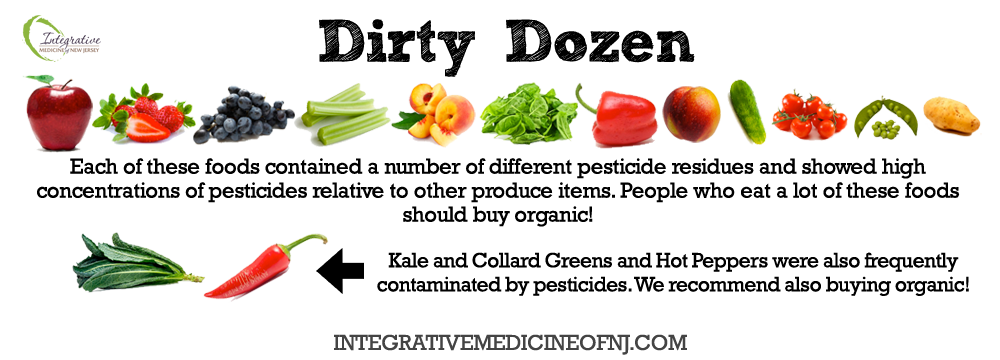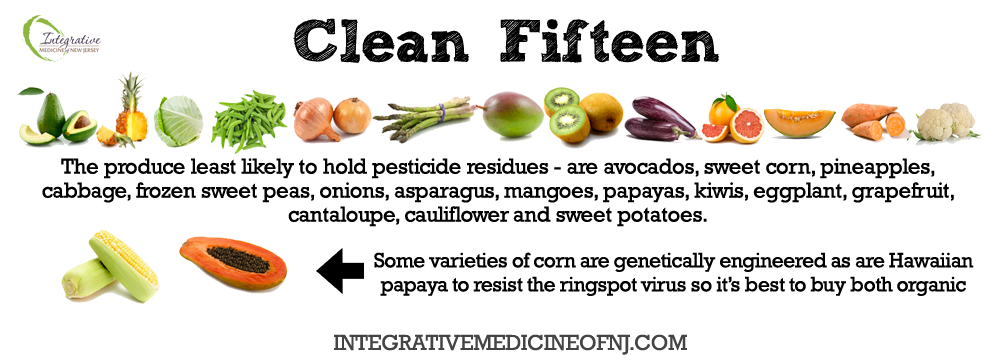Don’t Want to Eat Bug and Weed-Killers?
You have the Power to Reduce Your Intake of Pesticides by Avoiding the Dirty Dozen Crops or by Purchasing Organically-Produced Fruits and Vegetables Instead.
Two-thirds of produce samples in recent government tests had pesticide residues. Pesticides in Produce helps you shop smart by highlighting the cleanest and dirtiest conventionally-raised fruits and vegetables. If a conventionally grown food you want tests high for pesticides, go for the organic version instead.
Dirty Dozen
Dirty Dozen list of produce includes apples, strawberries, grapes, celery, peaches, spinach, sweet bell peppers, imported nectarines, cucumbers, cherry tomatoes, imported snap peas and potatoes.
Each of these foods contained a number of different pesticide residues and showed high concentrations of pesticides relative to other produce items. Dirty Dozen extra highlights hot peppers and leafy greens – kale and collard greens – often tainted with unusually hazardous pesticides.
In particular:
• Every sample of imported nectarines and 99 percent of apple samples tested positive for at least one pesticide residue.
• The average potato had more pesticides by weight than any other food.
• A single grape sample contained 15 pesticides. Single samples of celery, cherry tomatoes, imported snap peas and strawberries showed 13 different pesticides apiece.
Leafy greens – kale and collard greens – and hot peppers do not meet traditional Dirty Dozen ranking criteria but were frequently contaminated with insecticides that are toxic to the human nervous system. People who eat a lot of these foods buy organic instead.

The Clean Fifteen:
Clean Fifteen – the produce least likely to hold pesticide residues – are avocados, sweet corn, pineapples, cabbage, frozen sweet peas, onions, asparagus, mangoes, papayas, kiwis, eggplant, grapefruit, cantaloupe, cauliflower and sweet potatoes. Relatively few pesticides were detected on these foods, and tests found low total concentrations of pesticides.
Notable findings:
• Avocados were the cleanest: only 1 percent of avocado samples showed any detectable pesticides.
• Some 89 percent of pineapples, 82 percent of kiwi, 80 percent of papayas, 88 percent of mango and 61 percent of cantaloupe had no residues.
• No single fruit sample from the Clean Fifteen tested positive for more than 4 types of pesticides.
• Detecting multiple pesticide residues is extremely rare on Clean Fifteen vegetables. Only 5.5 percent of Clean Fifteen samples had two or more pesticides.

For more information or guidance please call 973-736-5300 to schedule an appointment at Integrative Medicine of New Jersey.
References from EWG.ORG













